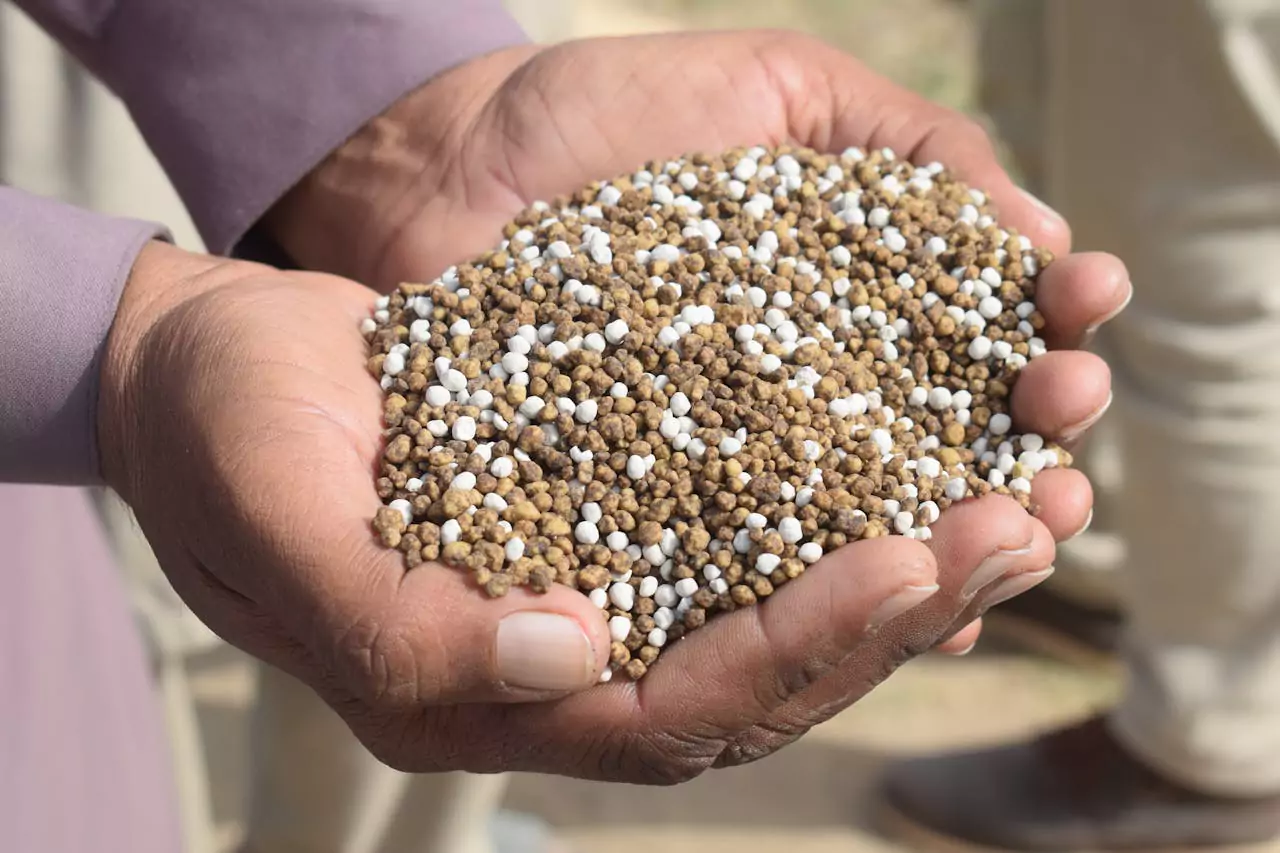
New research Fertiliser from Planet Tracker underscores the alarming environmental, economic, and public health risks posed by Brazil’s heavy reliance on synthetic fertilizers. The research highlights a fundamental issue within Brazil’s National Fertilizer Plan (PNF), which seeks to reduce the nation’s dependence on imported synthetic fertilizers. Currently, synthetic fertilizers account for 86% of the country’s total fertilizer use. However, despite the PNF’s goal of boosting domestic fertilizer production, it lacks explicit targets for curbing the overuse of synthetic fertilizers and mitigating the associated climate, nature, and health risks.
Planet Tracker’s report, Brazil’s Fertilizer Risks: Identifying Innovation and Investment Opportunities, emphasizes the significant environmental impacts of synthetic fertilizer use in Brazil. According to the analysis, the use of synthetic fertilizers in the country contributes between 79 and 83 million metric tons (Mt) of CO2 equivalent (CO2e) emissions annually, representing a substantial 7% of Brazil’s national emissions as of 2021. What’s even more concerning is that nearly half of these emissions (47%) originate from the production of fertilizers imported into the country. This dependence on foreign fertilizer production not only worsens Brazil’s carbon footprint but also exposes the country to greater financial and environmental risks.
The Detrimental Impact on Brazil’s Natural Capital
The overuse of synthetic fertilizers in Brazil has far-reaching consequences, especially in terms of water pollution and greenhouse gas (GHG) emissions. The excess application of fertilizers has led to significant degradation of Brazil’s natural capital—such as its soil and water resources—which are integral to the country’s agricultural sector. Brazil’s agricultural industry is highly dependent on healthy ecosystems, and the ongoing environmental damage threatens the long-term viability of farming in the country.
This situation also poses risks for financial institutions investing in Brazil’s economy, particularly those with stakes in the agribusiness sector. As Brazil continues to overuse synthetic fertilizers, the financial community may face increasing exposure to the environmental, Fertiliser health, and regulatory risks associated with these practices. Moreover, with the mounting pressure to meet global climate goals and achieve net-zero emissions, the continued reliance on synthetic fertilizers could undermine the country’s efforts to transition to more sustainable agricultural practices.
In its previous Food Giants & Fertilizer Risk report, Planet Tracker outlined the critical role that investors can play in supporting a transition to regenerative agriculture. FertiliserThe report argues that financial institutions can help reduce synthetic fertilizer use in Brazil and contribute to the country’s broader sustainability goals by directing their capital toward innovative, nature-positive solutions that promote soil health and reduce GHG emissions.
Projected Growth of Synthetic Fertilizer Emissions
If Brazil continues to ramp up domestic fertilizer production as part of the PNF, the environmental consequences could be dire. Planet Tracker’s analysis suggests that synthetic fertilizer-related emissions could rise by as much as 89% by 2050 compared to 2021 levels. Fertiliser This increase would result from a larger domestic fertilizer production sector, which would entail higher GHG emissions from Brazilian fertilizer manufacturing facilities. In contrast, emissions from fertilizers produced abroad are currently excluded from Brazil’s national carbon accounting.
If these trends continue, Brazil’s net-zero ambitions could be severely hindered, making it increasingly difficult for the nation to meet its climate targets. Fertiliser The result would be a vicious cycle of rising fertilizer-related pollution, which would harm not only the country’s ecosystems but also public health and its economy as a whole.
A Sustainable Vision for Brazil’s Agricultural Future
Planet Tracker’s report outlines a more sustainable alternative that could drastically reduce Brazil’s synthetic fertilizer-related emissions.Fertiliser If Brazil were to decrease its demand for synthetic fertilizers by 60% by 2050, the nation could cut its fertilizer-linked GHG emissions by up to 86%. Achieving this goal would require a concerted effort to adopt more sustainable agricultural practices that reduce the need for synthetic fertilizers.

One of the most promising strategies to achieve these emissions reductions is the adoption of regenerative agriculture techniques. Regenerative agriculture focuses on practices that enhance soil health, increase biodiversity, and reduce the need for chemical inputs like synthetic fertilizers. These practices include crop rotation, intercropping with nitrogen-fixing plants, and the use of organic fertilizers. If widely adopted, regenerative agriculture could reduce Brazil’s synthetic fertilizer emissions by 46 Mt CO2e by 2050.
In addition to regenerative agriculture, the use of bio-inoculants—nitrogen-fixing bacteria applied to crop seeds—could further reduce the need for synthetic fertilizers. Bio-inoculants have the potential to cut fertilizer demand by saving up to 13 Mt CO2e annually if applied at scale. Beyond environmental benefits, reducing synthetic fertilizer use would also lower input costs for farmers, helping to enhance the economic resilience of Brazil’s agricultural sector.
The Role of Financial Institutions in Driving Change
The report highlights several key actions that financial institutions can take to support Brazil’s transition to more sustainable agricultural practices. Sovereign bond investors, for example, can engage with the Brazilian government and the Ministries of Agriculture and the Environment to ensure that Brazil’s National Biodiversity Strategy and Action Plan is updated and aligned with the Kunming-Montreal Global Biodiversity Framework. This update should be completed by the end of June 2025 to meet international biodiversity commitments.
Investors can also play a critical role in encouraging the Brazilian government to revise the National Fertilizer Plan to include ambitious targets for reducing synthetic fertilizer use. A reduction target of 20% by 2030 and at least 70% by 2050 would be a strong first step toward addressing the country’s fertilizer overuse problem.
Moreover, financial institutions should engage with Brazilian food producers and their international customers to include Scope 1 and Scope 3 fertilizer-related emissions in their GHG emissions disclosures and net-zero plans. This transparency will help ensure that both domestic and international stakeholders are aligned in their efforts to reduce the environmental impacts of Brazil’s agricultural sector.
The Path Forward: Regenerative Agriculture and Financial Support
As Emma Amadi, Senior Research Analyst at Planet Tracker, explains, “The overuse of synthetic fertilizer in Brazil poses significant nature and climate risks to the country’s agricultural sector and the economy more broadly.” The report calls for financial institutions to help drive the transition to a more sustainable and regenerative agricultural system that reduces synthetic fertilizer use, improves ecosystem health, and mitigates the risks to public health.
The path forward involves a coordinated effort from financial institutions, government bodies, and agricultural stakeholders. By supporting regenerative agriculture and fostering innovation in the sector, investors can help Brazil reduce its reliance on synthetic fertilizers and move towards a more sustainable agricultural future.




